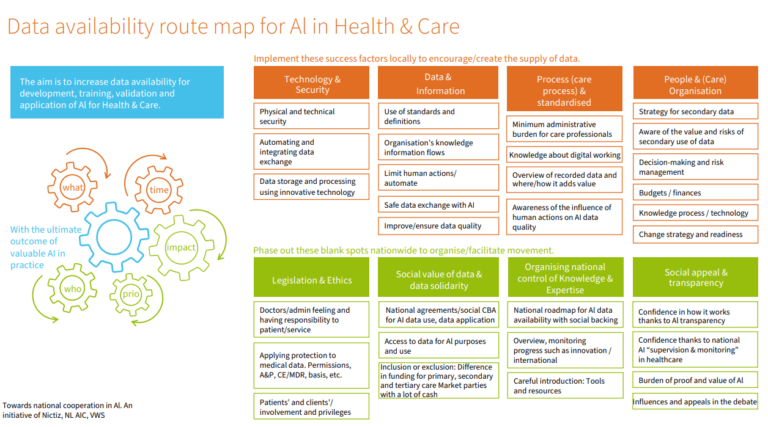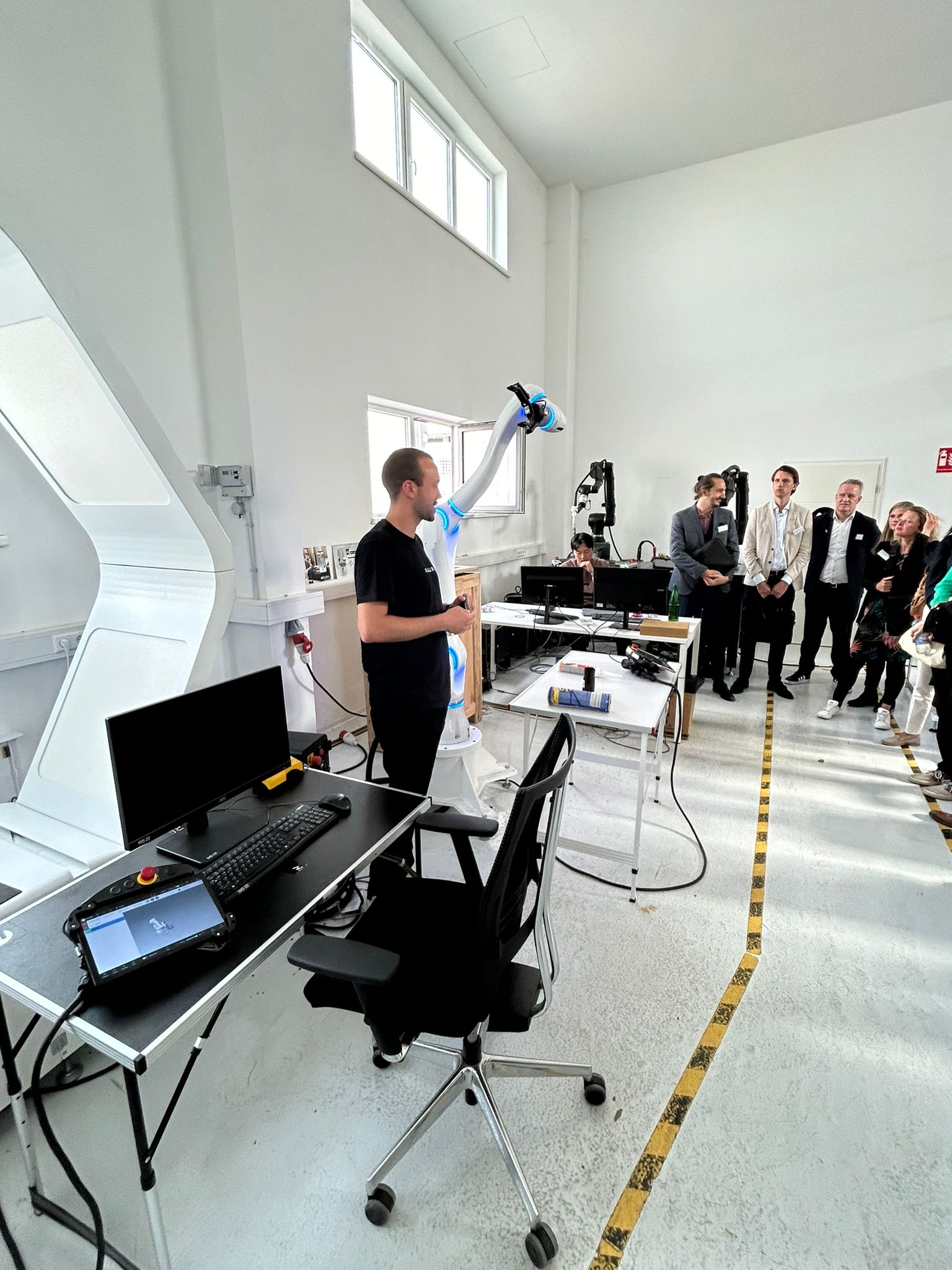Applying AI in healthcare and health in general seems very promising, but the development and application of AI in healthcare in the Netherlands is going more slowly than desired. To make maximum use of the possibilities offered by AI applications, data is needed that is good in terms of variety, volume and quality so that algorithms can be developed, trained, validated and applied in practice. However, people in the field see the lack of such data as the biggest bottleneck for applications in health and care. The fact that there is no shortage of data per se but that the available health data is not reused can be seen inter alia from the report previously published by Capgemini entitled (in translation) ‘Baseline Data Availability Measurement in Health and Care‘.
From sounding board to national roadmap
The NL AIC, Nictiz (organisation for digital information exchange in healthcare) and the Ministry of Health, Welfare and Sport have therefore joined forces in a more in-depth investigation of the underlying causes of the lack of data for AI. In pre-existing studies, reports and recommendations, they found 31 building blocks for data availability that have not as yet been sufficiently initiated, developed or allocated anywhere. The Nictiz layer model and the data maturity model were the basis. Discussions with experts in the field created a picture of the level of completeness of the various building blocks. Then the blocks were clustered according to their main topics into a clear road map. The principle was the degree of national availability of data: to be implemented locally or organised nationwide.
Using the outputs of this sounding board, a larger group of experts and stakeholders in the field were asked which building blocks we should tackle first in the Netherlands to make data available for AI more quickly and on a larger scale. This also covered the question of which parties have responsibility in the solution for each of the building blocks. The eleven building blocks were then identified that will have the greatest impact in the short term if parties tackle them together.
Top 5 for the availability of data for AI
A dialogue session held on 10 November 2021 with administrators and the ‘influencers’ of parties named in the call as potential owners of the eleven building blocks led to a top-five list of topics on which action should be taken first:
- Access to data for AI use
- Use of standards and definitions
- Confidence in how it works thanks to Al transparency
- Careful introduction of AI
- Patients’ involvement & privileges






